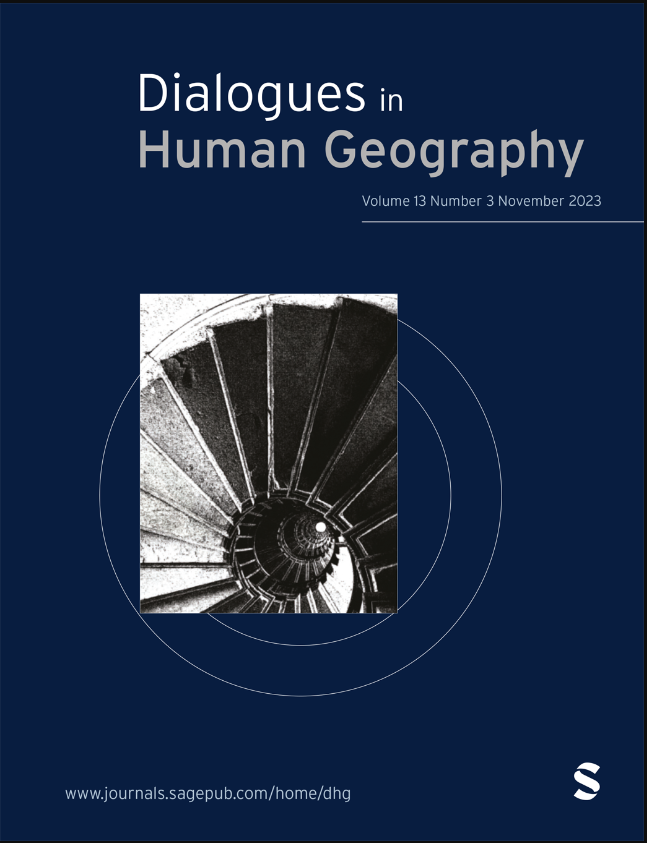为了人文地理学中的普通善良
IF 9.6
1区 社会学
Q1 GEOGRAPHY
引用次数: 0
摘要
在这篇评论中,我提出了在人文地理学中承认和鼓励一种世俗的善意的理由,这种善意在雄心上是不起眼的,但在影响上却是潜在的深远的。尽管继续分析使我们中的许多人需要善意行为来弥补新自由主义学院的失败和暴力的条件很重要,但我认为,与这种批判性学术一起,我们可以继续为“普通”善意腾出空间,这种善意不一定需要通过批判性反思来证明自己。本文章由计算机程序翻译,如有差异,请以英文原文为准。
For ordinary kindness in human geography
In this commentary, I make a case for recognizing and encouraging in human geography a sort of mundane kindness that is unremarkable in its ambition, but potentially profound in its impacts. Although it is important to continue to analyze the conditions that have left so many of us in need of acts of kindness that compensate for the failures and violence of the neoliberal academy, I argue that alongside this critical scholarship we could continue to make room for ‘ordinary’ kindness that does not necessarily need to justify itself through critical reflection.
求助全文
通过发布文献求助,成功后即可免费获取论文全文。
去求助
来源期刊

Dialogues in Human Geography
GEOGRAPHY-
CiteScore
8.00
自引率
4.00%
发文量
86
期刊介绍:
Dialogues in Human Geography aims to foster open and critical debate on the philosophical, methodological, and pedagogical underpinnings of geographic thought and practice. The journal publishes articles, accompanied by responses, that critique current thinking and practice while charting future directions for geographic thought, empirical research, and pedagogy. Dialogues is theoretically oriented, forward-looking, and seeks to publish original and innovative work that expands the boundaries of geographical theory, practice, and pedagogy through a unique format of open peer commentary. This format encourages engaged dialogue. The journal's scope encompasses the broader agenda of human geography within the context of social sciences, humanities, and environmental sciences, as well as specific ideas, debates, and practices within disciplinary subfields. It is relevant and useful to those interested in all aspects of the discipline.
 求助内容:
求助内容: 应助结果提醒方式:
应助结果提醒方式:


